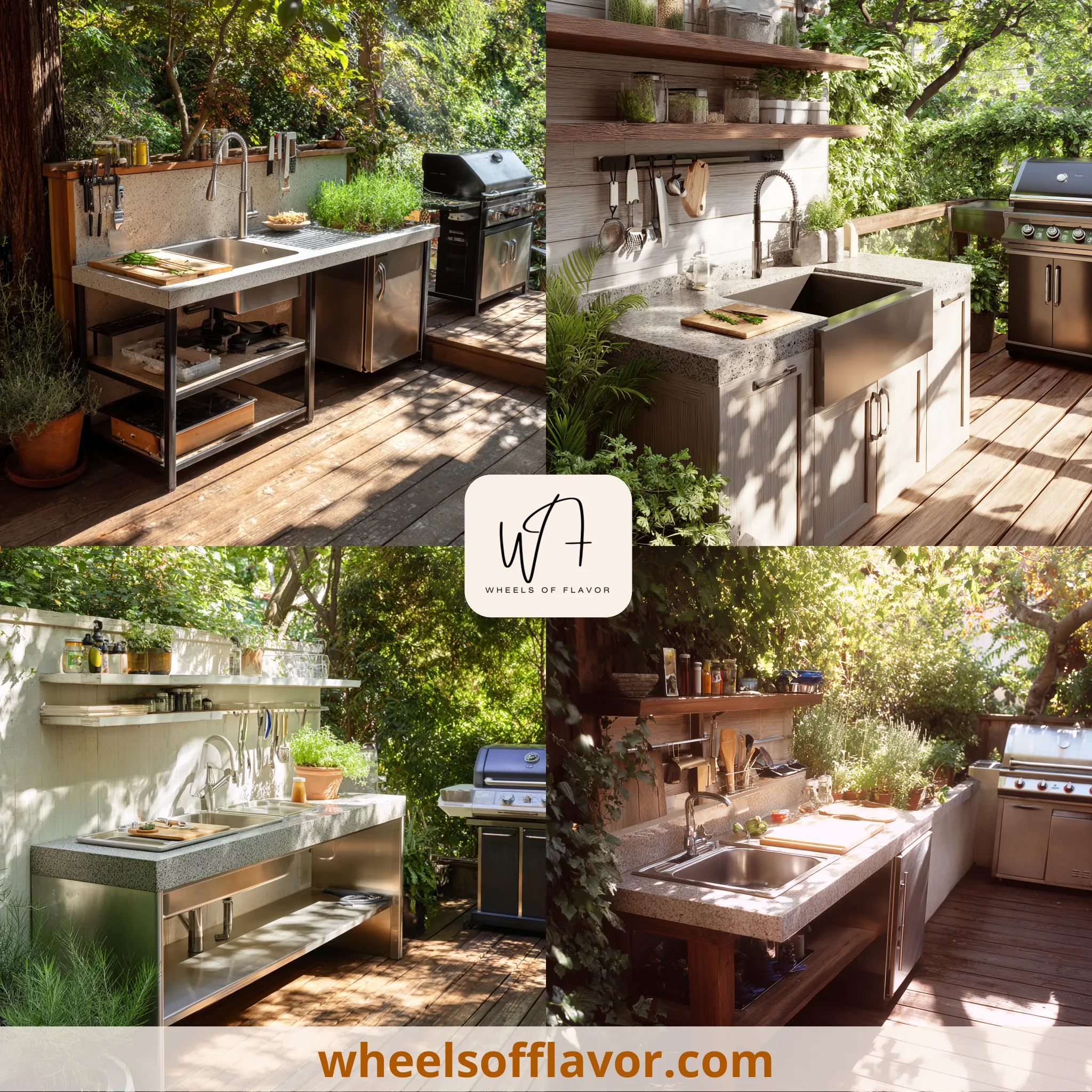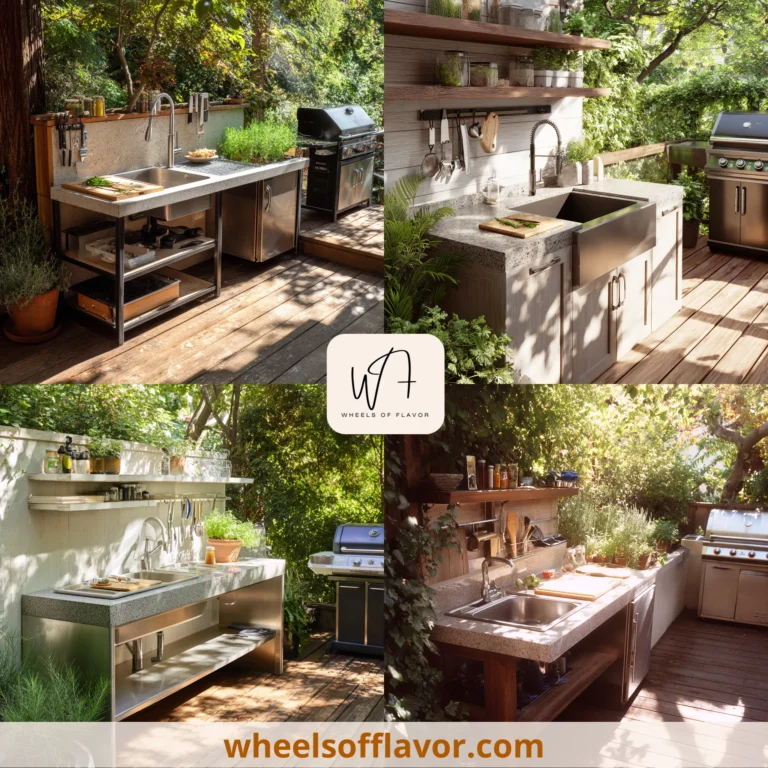
Imagine stepping into your backyard to the sight of a beautifully designed outdoor kitchen, complete with a functional and stylish outdoor kitchen sink. This isn’t just about adding value to your home; it’s about creating a space where culinary adventures meet the tranquility of nature. An outdoor kitchen sink is the cornerstone of any outdoor cooking area, offering convenience and efficiency that elevates your outdoor dining experience. Whether you’re a seasoned grill master or someone who enjoys casual weekend barbecues, incorporating an outdoor kitchen sink into your setup can significantly enhance your cooking and cleaning processes. This article delves into the essentials of choosing, installing, and maximizing the use of your outdoor kitchen sink, ensuring your outdoor kitchen is as practical as it is picturesque.
Choosing the Perfect Outdoor Kitchen Sink
Selecting the right outdoor kitchen sink involves considering material durability, size, and style. Stainless steel sinks are a popular choice due to their resistance to rust and ease of cleaning. However, granite composite sinks offer a more upscale look and are equally durable. The size of your sink should correspond to the amount of space you have and your typical usage. For those who entertain often, a larger, double-basin sink might be ideal. Style-wise, ensure your sink complements the overall aesthetic of your outdoor kitchen. Remember, the right sink not only serves a functional purpose but also enhances the visual appeal of your outdoor space.

Queen Size 4 Piece Sheet Set - Comfy Breathable & Cooling Bed Sheets Set - Hotel Luxury Bedding for Women, Men, Kids, Teens, Boys & Girls
🛒 Buy on AmazonInstallation Tips for Your Outdoor Kitchen Sink
Proper installation is key to ensuring your outdoor kitchen sink stands the test of time. First, consider the plumbing. It's advisable to consult with a professional to ensure your sink is correctly connected to your home's water supply and drainage system. Weatherproofing is another critical factor, especially in areas prone to freezing temperatures. Insulating pipes and choosing materials that can withstand extreme weather conditions will prevent damage and extend the lifespan of your sink. Additionally, positioning your sink near your cooking area maximizes efficiency, making food prep and cleanup a breeze.
Maximizing the Utility of Your Outdoor Kitchen Sink
To get the most out of your outdoor kitchen sink, think about how it integrates with the rest of your outdoor kitchen. Adding a cutting board that fits over the sink can provide extra prep space, while a retractable faucet offers versatility for cleaning and filling pots. Storage solutions, such as under-sink cabinets, can keep utensils and cleaning supplies handy yet out of sight. For those who love to entertain, incorporating a small bar area next to the sink can make serving drinks and washing glasses more convenient. With thoughtful planning, your outdoor kitchen sink can become the most used and appreciated feature of your outdoor living space.
Conclusion
An outdoor kitchen sink is more than just a convenience; it's a gateway to creating unforgettable meals and memories in the comfort of your backyard. By carefully selecting the right sink, ensuring proper installation, and maximizing its utility, you can transform your outdoor kitchen into a functional and inviting space. As outdoor living continues to grow in popularity, investing in an outdoor kitchen sink is a decision that pays dividends in both enjoyment and home value. Whether you're hosting a summer barbecue or enjoying a quiet dinner under the stars, your outdoor kitchen sink will be at the heart of it all, proving that the best meals are those made outdoors.
Frequently Asked Questions
Q: What is the best material for an outdoor kitchen sink?
Stainless steel is highly recommended for its durability, resistance to rust, and ease of maintenance. Granite composite sinks are also a great choice for those looking for a more luxurious finish.
Q: Can I install an outdoor kitchen sink myself?
While it's possible to install an outdoor kitchen sink yourself, consulting with a professional plumber is advisable to ensure proper connection to your home's water supply and drainage system, especially to avoid issues with freezing temperatures.
Q: How do I protect my outdoor kitchen sink from the elements?
To protect your outdoor kitchen sink, consider using weatherproof materials, insulating pipes, and installing a cover when not in use. These measures will help prevent damage from extreme weather conditions and prolong the lifespan of your sink.

